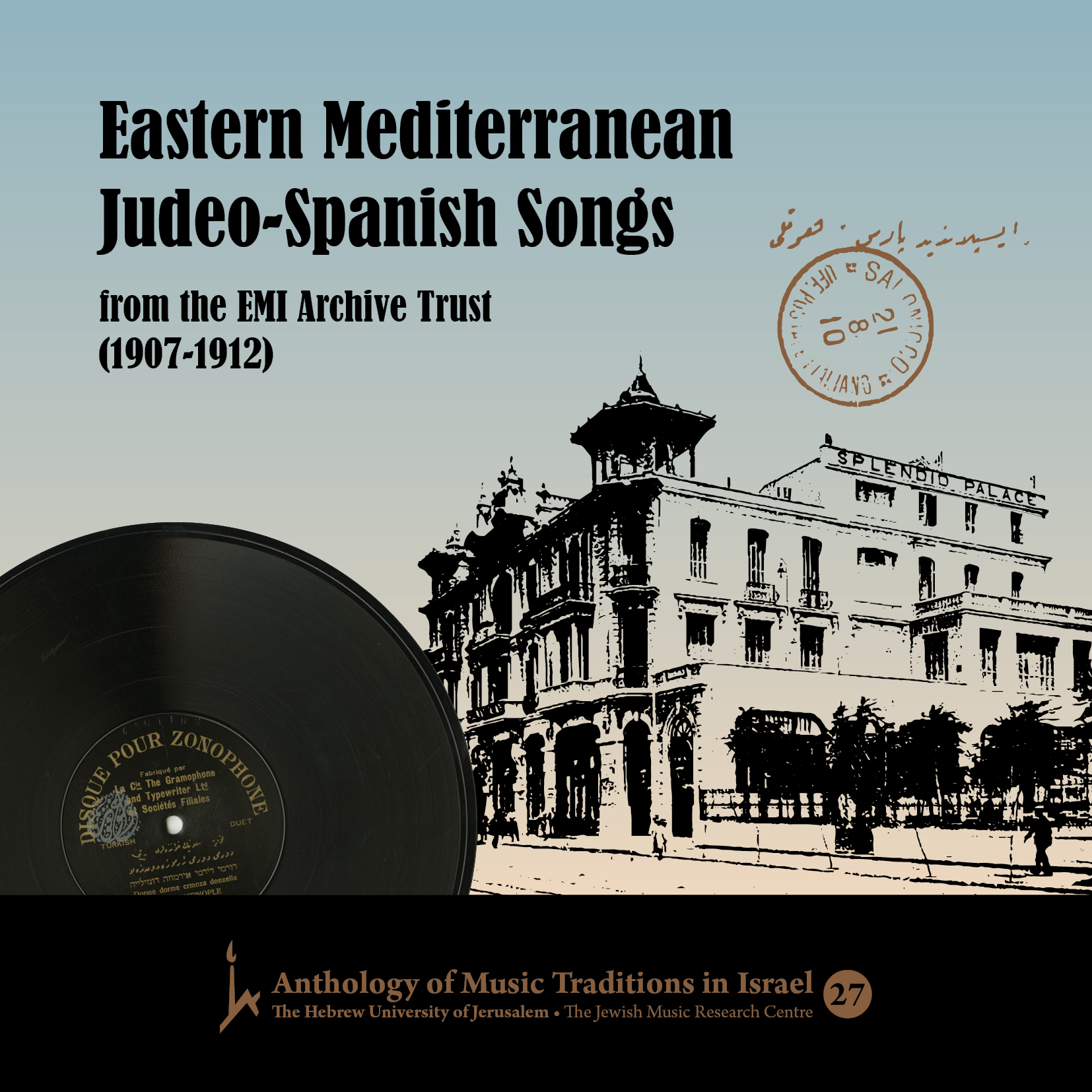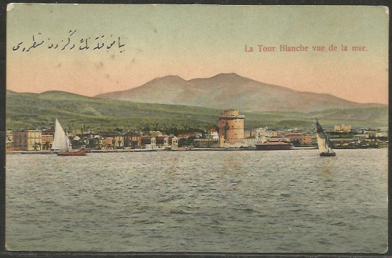CES
25. El padre Mercader + El cuerpo de la mujer (CES)
A combination of various stanzas, some of which are very well known in the literature (Attias 1972, no. 42 and musical transcription in p. 279-280; Hemsi 1995, no. 136; Levy 1959-1973, vol. II, nos. 95-96, vol. III, no. 34). In 1907 Albert Beressi recorded another version under the title Ah Sarica bré (Odeon 54238). The song was widely documented in fieldwork from singers originating in Turkey, the former Yugoslavia and Greece. The recording opens with the topic of the merchant father, then moves to a stanza around the motif of water and ends with two stanzas of the serial description of the body parts with similes inspired by natural elements adopted from a song known in the literature as El cuerpo de la mujer or Las prendas de la novia (Seroussi 2019, chapter 4). Capan, mentioned in the opening stanza, was a famous wholesale market in Salonica. The tune in 7/8, borrowed from a Bosnian song with similar content, is characteristic of many Balkan dances.
La rama de muez
cayó a la mar.
La rama de muez
cayó a la mar.
Bre Sarica, linda y hermosica,
yo te va tomar
zapatos del Capan.No m’aprime a mí
que me dejes tu.
No m’aprime a mí
que me dejes tu.
Tengo padre
mercader muy grande
que me va tomar
zapatos del lugar.Bre Sarica bre,
traeme copo d’agua.
Bre Sarica bre,
traeme copo d’agua.
‘Sto descalza,
hay rosío en bajo
me llenó los pies
me llenó los pies.Ama tienes caras
manzanas correladas.
Ama tienes caras
manzanas correladas.
Por mi vida,
el que me las dió
mi padre me perió.Ama tienes cejas
sanbašugas pretas.
Ama tienes cejas
sanbašugas pretas.
Por mi vida,
el Dio me las dió
mi madre me perió.






